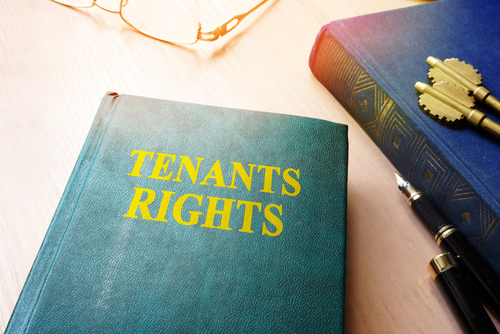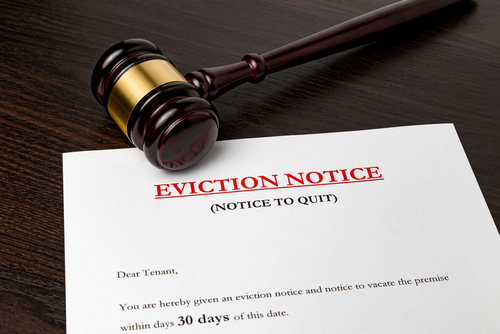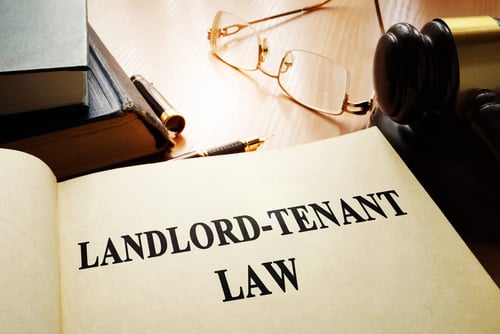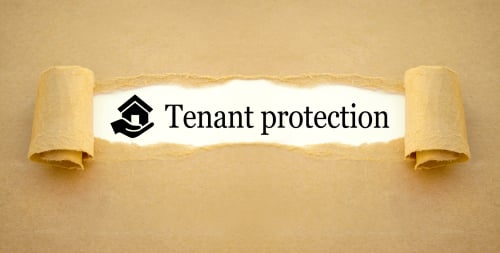All tenants have rights–and it’s crucial for tenants and landlords to recognize these rights. Additionally, keeping up with these rights and avoiding conflict is in everyone’s best interest. However, unfortunately, you may find yourself looking for a lawyer due to escalated disputes or disagreements. If you do, it’s essential to know your rights and how to find a lawyer to work with. So, read along as we go over Maryland tenant rights, when to hire an attorney, and how to find one.

Contents of This Article:
- What are Maryland Tenant Rights?
- When Would You Have to Hire an Attorney?
- Tips for Finding a Tenant-Friendly Lawyer
- What is the Maryland Tenant Protection Act?
- Advice to Avoid Potential Landlord-Tenant Conflicts
- Contact Your Local Property Managers
What are Maryland Tenant Rights?
Each state has specific rental laws and tenant rights. Maryland tenant rights include all federal housing laws and protection when rights are violated. Additionally, Maryland has some rules that vary from other states. For instance, there’s no security deposit limit, but landlords can only charge up to 2 months’ rent.
Ultimately, Fair Housing Laws are extremely important when it comes to Maryland tenant rights, and they must be followed nationwide. These laws are put in place to protect renters from discrimination and bias from landlords.
If you feel like your tenant’s rights are being violated, you don’t want to wait to take action. Although you might want to avoid lengthy lawsuits and hiring lawyers, sometimes it’s necessary. So next, let’s go over why you’d need to hire an attorney for issues with your landlord.
When Would You Have to Hire an Attorney?

If you’re in a heated conflict with your landlord, there comes the point where you may need to hire an attorney. But how do you know you’ve reached that point? Here are some instances where you may want to take legal action.
- Wrongful Eviction
- Discrimination
- Landlord Harassment
- Failure to Perform Necessary Maintenance
- Security Deposit Dispute
Wrongful Eviction
Most landlords win lawful evictions. However, tenants can sue for wrongful eviction if they don’t follow the process correctly. That said, there are three common instances where a tenant may hold legal grounds to sue in a court of law.

For instance, filing a retaliatory eviction, not following correct eviction procedures, or violating a tenant’s privacy are all reasons to sue. A retaliatory eviction involves taking possession of the property, raising rent, or taking away any provided services as a punishment.
Additionally, tenants can sue for not following state procedures if landlords don’t follow the proper guidelines and fill out the right paperwork. In this case, landlords cannot move tenant belongings out of the property, change the locks, or cut off utilities to the home.
Discrimination
Another primary reason to hire an attorney is if you’re being discriminated against. All tenants are protected under Federal Fair Housing Laws, which prohibit discrimination because of race, color, national origin, religion, sex, familial status, and disability.
Some examples of discrimination include:
- Denying a prospective tenant based on discriminatory reasons
- Placing a disabled tenant in a non-accessible unit
- Retaliating against a tenant due to discrimination
- Not allowing service animals or emotional support animals on the property
Landlord Harassment
Feeling harassed by your landlord is not right. It may call for legal action if you feel like your landlord is harassing you or invading your privacy. Some instances of landlord harassment include:
- Entering the property without notice
- Allowing others into the property without notice or consent
- Gossiping about tenants
- Showing up at your workplace to discuss landlord-tenant matters
- Unlawful interruption of utilities like heat or water
Failure to Perform Necessary Maintenance
If you’re living in uninhabitable rental property, or if your landlord refuses to perform necessary maintenance, you may want to find a lawyer. After all, your landlord must fulfill their obligations according to the lease agreement. So, if you’ve requested maintenance at your rental property and they’ve put it off or ignored it completely, you’ll want to take action steps to resolve the issue.
Additionally, if you have infestations or structural damage that makes the property uninhabitable, your landlord must address these issues immediately. After all, Maryland law dictates that all lease agreements must have a guarantee of a reasonably safe and inhabitable condition. Luckily, property management companies in Baltimore perform maintenance for Maryland rental properties.
Security Deposit Dispute

Finally, many landlord-tenant disputes revolve around security deposit terms and fees. As stated earlier, landlords may only charge up to 2-months rent for a security deposit. That said, no deposit can be based on discrimination or personal feelings toward a tenant.
On average, most security deposits range from $500 to one month’s rent. However, landlords with larger, more modern properties may charge up to 2-months rent. That said, if your landlord decides to withhold your security deposit, they must provide you with an itemized list of damages and reasons why they kept part or all of your deposit. Additionally, they must return your deposit within 45 days, whether they keep part of it or return it all.
Tips for Finding a Tenant-Friendly Lawyer
If you need to find a lawyer, you’ll want to find someone experienced and reliable. For example, a landlord-tenant attorney is someone who specializes in legal issues surrounding rental properties and landlord-tenant rights.

Essentially, they’re experts on all things legal property management and common issues tenants and landlords have. So, they can help you if a significant legal battle arises between you and your landlord. So, how can you find a lawyer for your scenario?
It’s essential to look for a lawyer with local knowledge. So, you may want to use local resources to find one near you. Additionally, you can ask for a referral from another lawyer to help you find a landlord-tenant attorney.
Once you’ve found a lawyer to help you, you’ll want to ask them many questions. After all, you’ll want some information on their background and experience helping tenants. Furthermore, you’ll want to search for a lawyer with the best rates and services for the value.
What is the Maryland Tenant Protection Act?
On June 1, 2022, the Maryland Tenant Protection Act became effective. This Act made several changes to tenant rights and protections for landlords to recognize. There are a few main points to note, including:

- Ratio Utility Billing System- Requires landlords that use “ratio utility billing systems” to provide information to tenants in writing. If you don’t provide billing information in writing, you cannot force a tenant to pay utility charges under a ratio utility billing system.
- Security Deposit Laws- Revised portion of the Act requires landlords to provide tenants with an itemized list of costs incurred, along with documentation to support their claims.
- Tenant Right to Assemble- Allows tenant organizations to assemble in meeting rooms within an apartment facility. Tenants have the right to assemble during reasonable hours and on reasonable notice to the landlord.
- Protections for Abuse- Expands upon several provisions under current law for victims of domestic violence and sexual assault. For example, some protections prohibit landlords from disclosing personal information about a tenant or victim to any third party unless they consent in writing.
Advice to Avoid Potential Landlord-Tenant Conflicts
Engaging in conflict is not everyone’s cup of tea. Not to mention, it’s expensive to hire lawyers, and taking legal action can take several weeks to resolve. So, ultimately, the best course of action is to avoid potential landlord-tenant conflicts at all costs.
Some of the best ways for landlords and tenants to avoid potential conflicts include:
- Open and honest communication
- Request and address maintenance concerns immediately
- Follow all lease terms and obligations
- Properly maintain the property and avoid damages
- Handle emergencies properly
Contact Your Local Property Managers

If you’re having any issues with your rental property, it’s best to contact your property manager. They can help you communicate and resolve conflicts peacefully. Additionally, they can keep you updated on Maryland tenant rights and help you understand the law.
Our reliable property managers at Bay Property Management Group are just what you need! Whether you’re a property owner or tenant, our qualified property managers can help you get the information you need to succeed. We offer full-service property management, including tenant screening and communications, rent collection, eviction services, and more.
If you need rental management in Baltimore, Philadelphia, Northern Virginia, or Washington, DC, contact BMG today.
